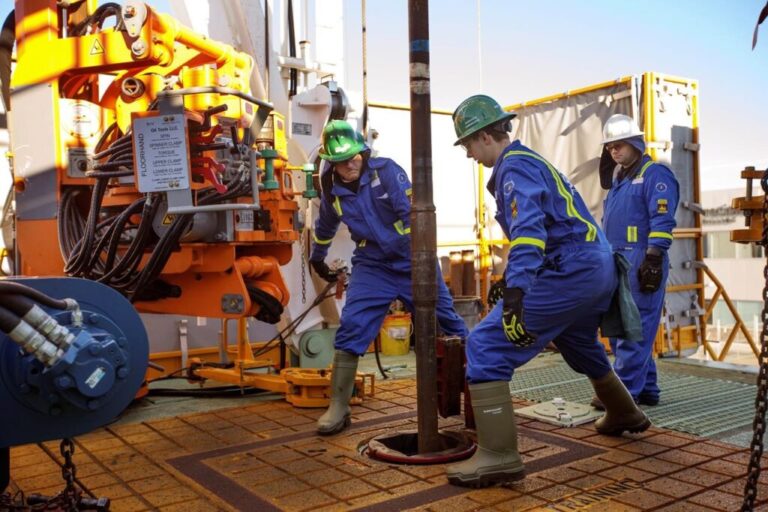How many jobs are available in energy in 2023 | Stats
As the world’s energy consumption increases by the day one should expect a positive answer to the question; how many jobs are available in energy and is energy a good career path to pursue?
The U.S. Energy & Employment employment Report’s most recent data indicates that there were 7.8 million jobs in the energy sector in 2023, with a 10% growth expected by 2031.
Five industries are covered by this sector’s employment opportunities: transportation, energy efficiency, electric power generation, fuels, cars, and combined transmission, distribution, and storage.
The research also mentions that these are the four states with the most populations, thus it stands to reason that the most opportunities would be found there.
Since almost all industries require power and electricity, energy workers are employed in a wide variety of settings.
Along with increased employment prospects, the demand for renewable energy is rising.
If you are interested in a career in the energy industry, you will certainly find a position that pays well and appeals to you.
Continue reading to find out about how many jobs are available in energy in 2023, including some of the top paying jobs.
See also – 9 Cheapest Acupuncture Schools to Consider For Your Education
Table of Contents
How Many Jobs Are Available in Energy?
According to the most recent data from the U.S. Bureau of Labor Statistics, 7.8 million jobs are available in energy in 2023, with a 30% growth predicted by 2033.
There are employment prospects in five areas that are covered by this sector: transportation, energy efficiency, electric power generation, fuels, automobiles, and combined transmission, distribution, and storage.
The states with the greatest job openings for renewable energy are California, Texas, Florida, and New York.
According to the data, it makes sense that the greatest number of possibilities would be present there if you wonder how many jobs are available in energy.
Energy workers are employed in a wide range of situations since electricity and power are necessities for practically all sectors.
See also – 5 Common Scholarship Mistakes & How to Avoid Them
Is a job in energy a good career path?
Yes, if you’re a recent graduate or looking to launch a career or still wondering how many jobs are available in energy you might feel a little overburdened.
After all, there are numerous options and professions you can pursue, regardless of whether you decide to study a certain degree or start looking for one right away.
Given the recent media attention around green energy, you might be thinking about a career in the energy industry.
As the world changes, global warming accelerates, and the population rises, the demand for energy will only grow.
Power keeps the world going. According to Stanford University, fossil fuels including coal, natural gas, and oil account for 80% of the world’s energy.
Whether you are beginning a job or changing careers or still in doubt on how many jobs are available in energy, It makes sense to assume that a profession in energy would be a sensible decision, and it is the correct answer.
See also – China Visa Lottery Application Form 2023/2024 – Apply
What Types of Jobs Are in Energy?
The energy sector includes a wide range of job titles and demands many different skill sets.
These jobs include everything from highly technical professionals to skilled workers.
Some of the most popular energy jobs are listed below:
1. Engineer
An enormous variety of issues are solved by engineers using math and science.
There are several options for engineers to work in the energy sector as various types of engineers tackle various types of difficulties.
The following are a few of the most typical engineering job titles in the energy sector:
- Civil Engineer
- Chemical Engineer
- Industrial Engineer
- Environmental Engineer
- Machine Learning Engineer
- Nuclear Engineer
- Reservoir Engineer
- Petroleum Engineer
- Electrical Engineer
- Plant Engineer
- Computer Engineer
- Renewable Energy Engineer
2. Laborer and construction workers
Construction and laborers are necessary for energy operations.
According to EESI, 50% of workers who are energy efficient work in construction.
Infrastructure for the power industry is installed, repaired, and maintained by laborers using heavy machinery and power tools.
There are many different kinds of laborers; for instance, a pipeline laborer uses equipment like bulldozers, backhoes, and cranes to dig trenches for pipes.
Construction sites with an energy focus employ personnel.
They construct auxiliary infrastructure, such as the bases for wind turbines.
3. Electrician
Electrical systems and components are designed, tested, repaired, and implemented by professional electricians.
Electrical technicians work with electrical circuits and wiring and perform preventative maintenance on electrical equipment.
An electrician should be contacted if there is an energy-related issue in your house.
4. Researcher
Researchers in the energy sector look into new and better ways to create energy.
Furthermore, the study of renewable energy sources, which can power our cars without emitting greenhouse gasses, is one such cutting-edge area of research.
Hydrogen fuel cells, which combine hydrogen and oxygen atoms to generate energy, are an illustration of this. Clean energy is the end product.
Biofuels made via ethanol production from the breakdown of cellulose are another example of an application.
A job in renewable energy can be the best choice for you if you want to learn more about green technology.
5. Surveying technician
A survey technician, also known as a surveying technician, works with mapmakers and surveyors to calculate and gather data that is used to measure the Earth’s natural features.
They use the data they’ve obtained to create topographical maps.
Surveying technicians frequently perform activities including using GPS and GIS to collect data, measuring, recording, and computing data sets, and making digital images and drawings of the locations they are tasked with for the maps.
6. Nuclear power reactor operator
A nuclear power reactor operator examines and adjusts the control rods on the reactor to ensure it receives the appropriate amount of electricity to operate properly.
They are also responsible for monitoring machinery such as cooling systems, turbines, reactors, and generators.
Additionally, they start and stop equipment while it is running, collect any data it may produce, and look into the causes of any anomalies they may detect.
7. Geologist
A geologist thoroughly analyzes and researches the composition, evolution, and processes of the earth.
Utilizing this knowledge, they understand the consequences on the environment and preserve its viability for both people and animals.
Other tasks can involve devising unique approaches to obtain information and carry out research without endangering the environment.
Conducting tests and surveys to look into various geophysical and geological occurrences, and offering guidance to governments and construction companies on environmental protection.
8. Chemist
A range of chemicals are subjected to testing by chemists in order to evaluate quality control or create new goods.
Many of them meticulously study the chemical makeup of numerous components regularly used in the manufacturing sector in order to keep products safe for consumers.
Creating and upgrading products, formulations, and analytical techniques, as well as collaborating closely with scientists and engineers to conduct testing, are all possible additional responsibilities.
See also – What Else Can a University Be Used For
Conclusion
Due to the development of technology as well as other causes, the energy sector is expanding quickly.
Finding how many jobs are available in energy is undoubtedly a sensible decision, and as you can see from the article above, the energy sector has a lot of work opportunities.
The energy sector not only affects the environment, but it also forms the backbone of our society’s economy, culture, and communities.
FAQs
What are the qualifications required for jobs in the energy sector?
The qualifications required for jobs in the energy sector can vary depending on the specific role and industry segment. Generally, technical positions such as engineers, technicians, and scientists often require a relevant degree in engineering, science, or a related field.
Are there opportunities for entry-level positions in the energy industry?
Yes, there are opportunities for entry-level positions in the energy industry. Many companies offer internships, apprenticeships, or entry-level programs specifically designed to provide hands-on experience and training for individuals starting their careers.
How is the job market in the energy sector?
The job market in the energy sector varies depending on factors such as geographical location, industry segment, and overall economic conditions. The demand for traditional energy jobs, such as those in the fossil fuel sector, can fluctuate due to factors like oil prices and geopolitical developments.
How many jobs are available in energy?
If you wonder how many jobs are available in energy check the recent data from the U.S. Bureau of Labor Statistics, that estimates 7.8 million jobs are available in energy in 2023
Are there opportunities for career advancement in the energy sector?
Yes, the energy sector offers opportunities for career advancement. As the industry evolves and expands, there is a need for professionals with specialized skills and experience to take on leadership roles.
What is the future outlook for jobs in the energy sector?
The future outlook for jobs in the energy sector is promising. As the world becomes more conscious of the need for sustainable and clean energy solutions, the demand for professionals in renewable energy, energy efficiency, and related fields is expected to grow significantly.
References
- ilo.org – renewable energy jobs hit 12.7 million globally
- Energy.gov – U.S energy and employment report (USEER)
- Weforum.org – how many jobs could the clean energy transition create?






